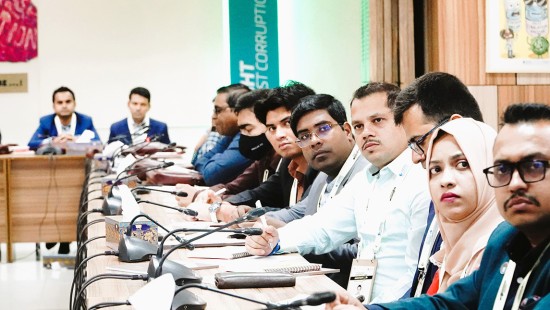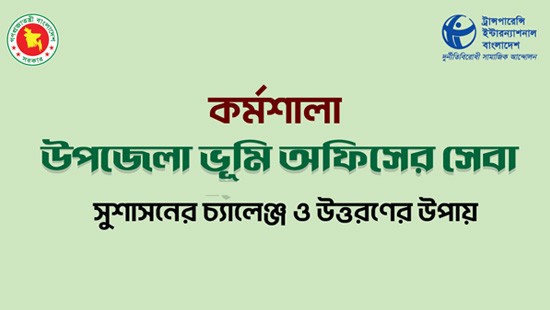Published: 27 August 2025
Transparency International Bangladesh (TIB) works at both the policy level with government leaders and the grassroots level with communities to ensure long-lasting anti-corruption impact. At the community level, TIB focuses on health, education, land, and environment through its volunteer-based platforms—Committees of Concerned Citizens (CCC), Youth Engagement and Support (YES) groups, and Anti-Corruption Groups (ACG). These groups identify problems, organize public hearings, conduct community monitoring, and advocate with local authorities to improve services, strengthen accountability, and empower citizens. While the impact is gradual, it becomes visible when government authorities adopt directives inspired by TIB’s recommendations.
On 25 August 2025, a delegation from the Foreign, Commonwealth and Development Office (FCDO), one of TIB’s development partners, visited Barishal to witness these community-driven efforts firsthand. The delegation, led by His Excellency Mr. James Goldman, Acting British High Commissioner to Bangladesh, was accompanied by Emma Wind, Governance Advisor; Kate Wadd, Second Secretary; and Tasneem Siddique, Deputy Program Manager. From TIB, the team was joined by Ms. Ferhana Ferdous, Director of the Civic Engagement Division, and Kazi Shafiqur Rahman, Coordinator – Civic Engagement.
During the day-long visit, the FCDO team joined a coordination meeting with CCC, YES, and ACG representatives, moderated by CCC President Professor Gazi Jahid Hossain, where local leaders shared success stories, challenges, and lessons learned. The delegates also observed community monitoring at Barishal General Hospital, witnessing how citizens are identifying gaps in governance and services and working with authorities to address them. Additionally, the team attended an advocacy meeting with the District Primary Education Authority, discussing how CCC efforts are contributing to sustainable improvements in education.
This visit highlighted how TIB’s grassroots networks—active in 45 districts nationwide—are silently but steadily driving change, ensuring accountability, and strengthening citizens’ voices in governance.












